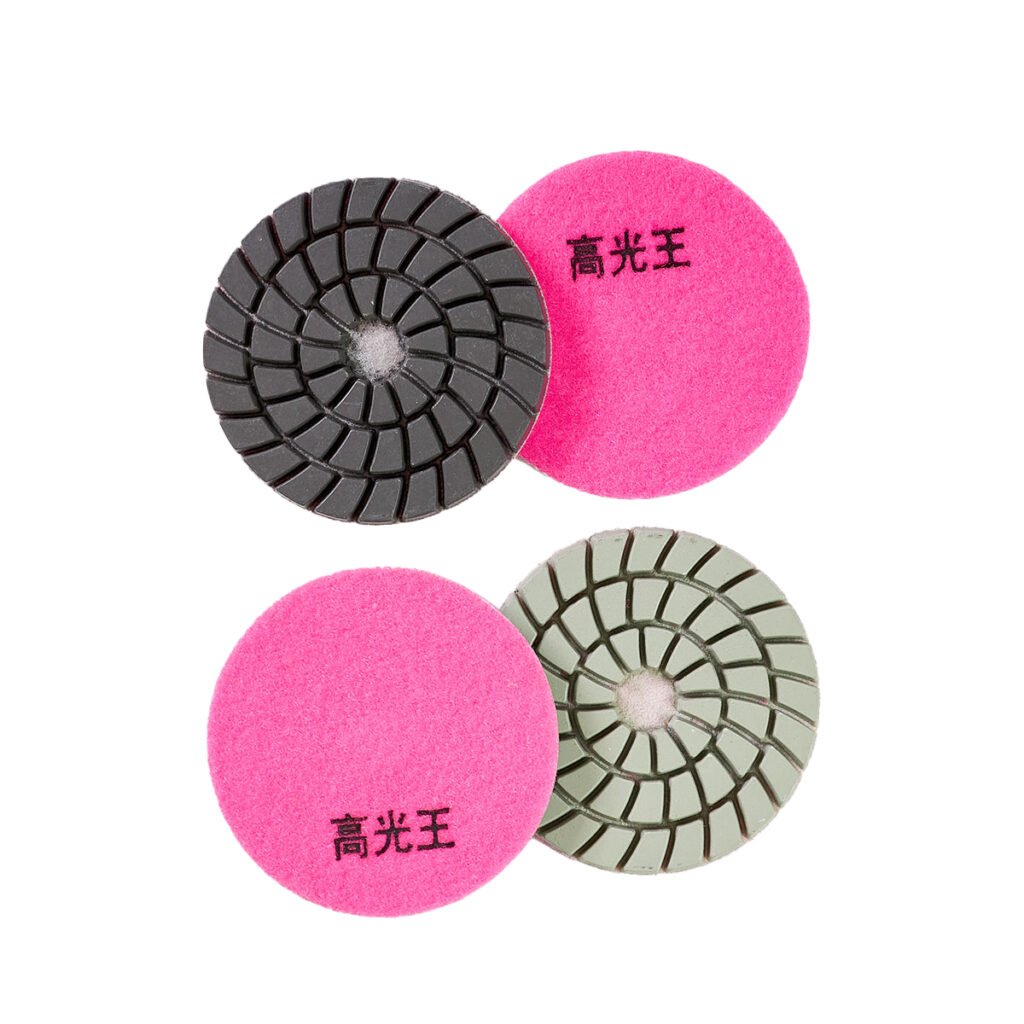When polishing porcelain tile, the selection of grit polishing pads depends on the tile’s condition and the desired finish. Here’s a structured approach:

Grit Sequence Recommendations:
Coarse Grinding (50-100 Grit):
- Use: Metal-bonded diamond pads for removing deep scratches, lippage, or leveling surfaces.
- Application: Initial grinding for tiles with significant imperfections.
Medium Grinding (200-400 Grit):
- Use: Transitional grits to refine the surface after coarse grinding, preparing for polishing.
- Application: Smoothing out scratches from coarser grits.
Fine Polishing (800-1500 Grit):
- Use: Resin-bonded diamond pads to begin the polishing process, achieving a semi-gloss finish.
- Application: Essential for honed (matte) finishes if stopped here.
High-Gloss Polishing (3000-10,000 Grit):
- Use: Ultra-fine resin pads or specialized polishing compounds for a reflective shine.
- Application: Final steps for glossy finishes; some porcelain may require additives or crystallizers.
Key Considerations:
- Tile Type: Unglazed porcelain is typically polished, while glazed tiles may not need it.
- Pad Type: Use diamond pads (metal-bonded for grinding, resin-bonded for polishing).
- Wet vs. Dry: Water cooling is recommended to reduce dust and heat.
- Manufacturer Guidelines: Always check tile-specific recommendations, as composition varies.
Pro Tips:
- Avoid Skipping Grits: Ensure each step fully removes scratches from the previous grit.
- Post-Polishing: Sealers or enhancers can protect and amplify the finish.
By following this grit progression, you can achieve a range of finishes from honed to high-gloss, tailored to the porcelain tile’s needs.



